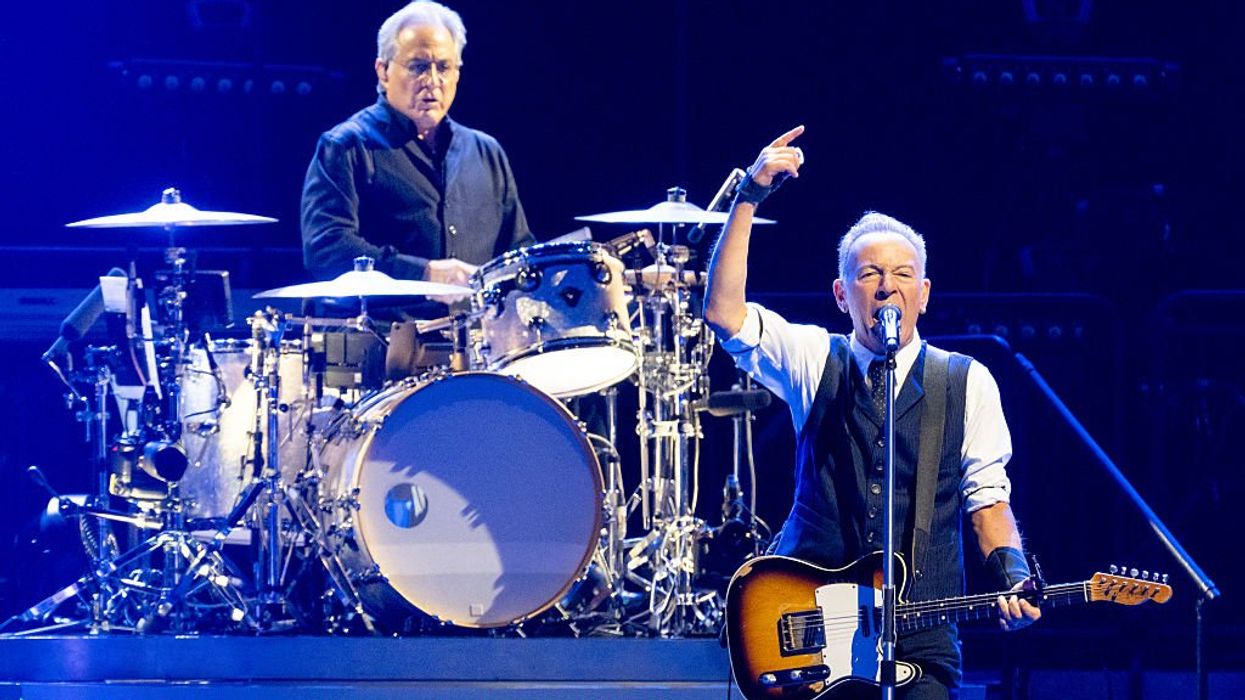During Bruce Springsteen’s recent Land of Hope and Dreams tour in Europe, the legendary musician drew the ire of President Trump at a concert in Manchester, England, on May 14, 2025. Springsteen openly criticized the Trump administration, calling it "corrupt, incompetent, and treasonous" and urging the audience to stand against authoritarianism.
He expanded on his concerns during the introduction to My City of Ruins, delivering a powerful statement on the state of democracy. Addressing the crowd, he declared: "There’s some very weird, strange, and dangerous shit going on out there right now. In America, they are persecuting people for using their right to free speech and voicing their dissent. This is happening now. In America, the richest men are taking satisfaction in abandoning the world’s poorest children to sickness and death. This is happening now."
Springsteen's remarks were met with enthusiastic applause, underscoring the strong support for his message. His condemnation of the Trump administration was not limited to a single event, as he repeated similar critiques at subsequent performances across Europe.
President Trump responded swiftly on Truth Social, launching an attack on Springsteen, branding him a “pushy, obnoxious jerk” and a “dried-out prune.” He further criticized Springsteen's political views as well as his music.
Trump didn’t limit his attacks to Bruce Springsteen. On Monday, May 19, he took to Truth Social, claiming—without presenting any evidence—that Springsteen, Beyoncé, and Bono had been paid by Kamala Harris to appear at her 2024 presidential campaign events. As is often the case with Trump’s accusations, he labeled their actions “CORRUPT & UNLAWFUL” and vowed to launch “a major investigation into this matter.”
For generations, art, music, and theatre have been powerful forces for social change in America, challenging politicians and shaping public discourse. Trump’s attempt to suppress lawful dissent strikes at the very foundation of the country’s democratic ideals. History is rich with examples of the arts reflecting and influencing major societal shifts:
- Broadway & Theatre: Early musicals, shaped by immigrant communities, explored themes of discrimination and identity. Productions like Show Boat (1927) addressed racism, while Hair (1968) became an anthem of countercultural resistance to the Vietnam War. More recently, Hamilton (2015) reimagined American history through a diverse cast, sparking conversations about representation.
- Music as Protest: Music has long been a rallying cry for change, from the folk songs of the Civil Rights Movement to hip-hop’s critique of systemic injustice. Artists like Bob Dylan, Nina Simone, and Public Enemy have used their platforms to challenge political narratives and inspire activism.
- Visual Art & Political Discourse: The Harlem Renaissance of the 1920s celebrated Black identity and resistance, while contemporary street art—such as Banksy's work—continues to challenge authority and provoke thought.
Once again, in a moment of political and cultural upheaval, Americans can turn to the arts as a unifying force. Music, theatre, poetry, and pop culture have the power to connect people across ideological divides. By celebrating what unites us, music in particular can activate millions in a movement for democracy.
Perhaps now is the time to enlist musicians to heed the Call for Democracy —to create a modern-day version of We Are the World in defense of democratic values. Not as a partisan endorsement but as a universal call to protect and preserve democracy itself. Imagine artists across genres—pop, country, hip-hop, rock—coming together in a show of solidarity.
History offers a precedent. In 1985, the world witnessed the transformative impact of We Are the World and Live Aid, two initiatives that used music to raise awareness and fight famine in Africa. They demonstrated the power of collective action to ease human suffering.
Today, in an era of deep political division, Americans can and must unite around one shared principle: the belief in every individual’s right to determine their own destiny. Artists have the ability to touch the soul of a nation, using their voices to stand against authoritarianism.
Springsteen echoed this sentiment during his Land of Hope and Dreams performance in England, issuing a call to action: "In my home, the America I love, the America I've written about—that has been a beacon of hope and liberty for 250 years—is currently in the hands of a corrupt, incompetent, and treasonous administration. Tonight, we ask all who believe in democracy and the best of our American experiment to rise with us, raise your voices against authoritarianism, and let freedom ring."
So today, borrowing the words from Hamilton’s “The Story of Tonight”:
"Raise a glass to freedom, something they can never take away—no matter what they tell you."
David Nevins is co-publisher of The Fulcrum and co-founder and board chairman of the Bridge Alliance Education Fund.




















Trump & Hegseth gave Mark Kelly a huge 2028 gift